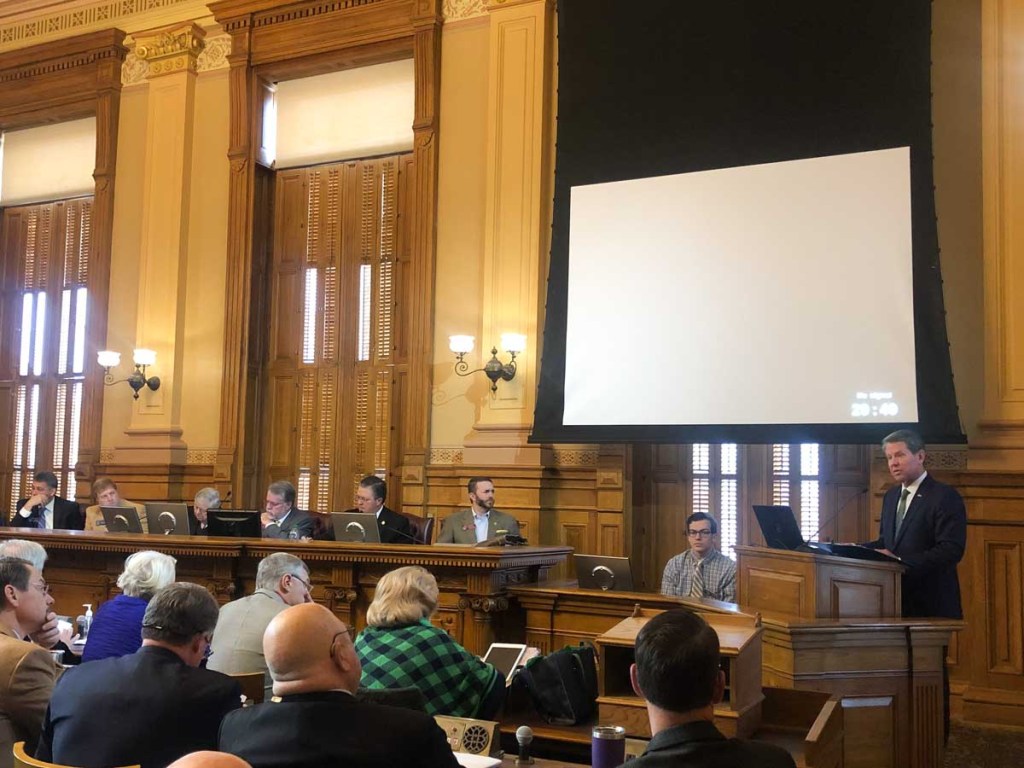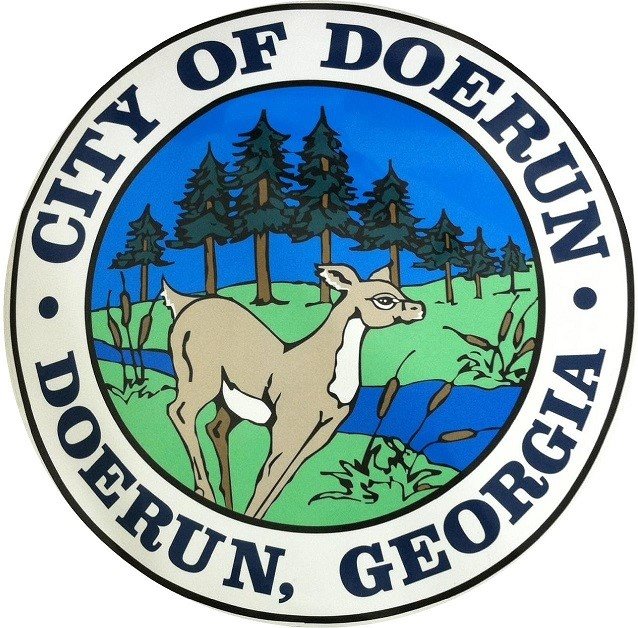Kemp: Budget cuts won’t hurt state agencies
Published 12:45 pm Tuesday, January 21, 2020

- Gov. Brian Kemp presents his budget proposal to lawmakers during joint House and Senate budget hearings on Jan. 21 in Atlanta.
ATLANTA — Gov. Brian Kemp praised state agencies that have cut their departments by millions, while defending his budget increases for teacher and state employee pay raises.
“The budget before you shows that reducing costs doesn’t require drastic cuts to other agency activity,” Kemp told lawmakers during House and Senate joint budget hearings Tuesday.
Kemp told legislators that his “challenge” to state agencies to cut 4% in their budgets fiscal year 2020 and 6% in fiscal year 2021 means “recognizing the resources you have, and using them as fiscally as possible.”
Kemp gave examples of state departments that submitted budget-cutting proposals that would save the state millions.
The Department of Community Supervision reduced its budget by $1.3 million by increasing mobile technology and giving up its real estate for a “virtual office model,” he said. The Department of Corrections saved the state $16 million by simplifying its system.
Other agencies found ways to reduce their real-estate footprints, consolidate administrative functions and reorganize staff, Kemp said, “all with no impact of services.”
Kemp then defended his budget add-ins — a $2,000 teacher pay raise, additional funding for his Anti-Gang Task Force and a $1,000 raise for full-time state employees earning less than $40,000 a year.
“We must continue to invest in our teachers,” Kemp said, “attract the best and brightest to the profession and reward hard work through their careers.”
The state economist during his presentation to lawmakers warned of the possible negative effects of the low-unemployment rate. While wage growth in Georgia is solid, job growth is low, Jeffrey Dorfman said, with not enough people to fill open positions.
Kemp noted his budget proposal includes $81 million to technical college programs to “fully fund enrollment growth and mitigate the need for a tuition increase.” The boost in education also includes an extra $56 million in lottery funds.
“Increasing the number of jobs requires some form of post-secondary education, therefore we must continue to provide a future workforce from access to affordable higher education opportunities.”
Additional funds are set in Kemp’s budget proposal to go toward his public-safety initiatives including his Anti-Gang Task Force. As state departments cut positions from their budgets, Kemp proposes a $2 million increase for seven new positions on his task force and the implementation of a statewide gang database.
Kemp defended his allocation of $45 million for a state employee pay raise.
“We must take care of those that take care of us,” Kemp said. “Agency leaders regularly state employee recruitment and retention is one of the biggest challenges. Turnover wastes taxpayer resources and causes disruption in service.”
Income tax cut not in Kemp’s proposal
The state economist told lawmakers Tuesday that state revenue is up, but not as much as usual.
“I believe Georgia’s economy is likely to continue growing slowly over the next nine to 12 months,” Dorfman said, “which means we’ll have some additional revenue but not as much additional revenue as we’re used to having.”
Dorfman said a .25% income tax cut — desired by lawmakers — wasn’t taken into consideration in Kemp’s proposal. The .25% cut last year, he said, lowered state tax collections by $500 million a year. First six months of this fiscal year, income tax only grew by 0.3%
“I’m not saying it will never happen,” he said, “but it is not in the Fiscal Year 21 budget.”
If lawmakers chose to institute another tax cut during session, “where that money gets made up is between you all and the governor,” he said.
“One of the reasons that the budget is tight is because state government has returned — both to taxpayers and to local government — a significant amount of potential state revenue,” Dorfman said.
The state currently has more than $2.8 billion in its reserve fund — approaching 11% of the state’s total budget — which is crucial to remain at that level, Dorfman said, to maintain the state’s AAA bond status.
“I think it is important that we continue to be prudent managers of the state’s resources,” he said, “and make sure our rainy day fund stays healthy.”
While wages in the state are nearly at 3.5%, job growth has slowed to 1.4%, Dorfman said, which is expected with a record unemployment rate of 3.3%.
“Budget is tight, because revenue growth is slow,” he said. “So why is revenue growth slow? Revenue growth is slow because while employment is growing and employment is an all-time high, it is growing slowly.”
Retail sales are at a high but growing slowly. Corporate sales tax are at a high and growing “decently.”
“There are parts of our budget that either everybody agrees are priorities and need to grow faster than revenue,” Dorfman said, “or essentially on autopilot like Medicaid, and are growing faster than revenue and there’s nothing we can do about it.”
The state economist told lawmakers that 80% of the budget is on “autopilot” if they choose to continue to fully fund the quality-basic education formula.
“Given the additional funding the legislature is providing additional funding for education and public health,” he said, “there simply isn’t enough money left for things we have not made as much as a priority.”





